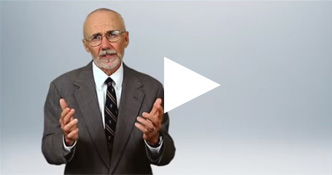Planned Giving: Not Just For The Wealthy
by William J. Moran, J.D., M.S.Ed.
Published in Funding Connection/November 1996
Wealth is not a prerequisite to be a planned giver. Assets are.
There is a difference, you know.
I am in hospital fundraising. Several years ago, a physician on staff gave me the name of an elderly woman who had our hospital in her will. I looked up her address in the phone book and drove out to see her. She lived in one of the poorest areas of town. Her address was that of a drab duplex, one of a dozen identical structures on the block. An abandoned house with broken windows was across the street. Later, we found out from a realtor that this neighboring residence was used as a crack-house. Seeing the neighborhood, I thought the address was wrong. I drove off without going to the door. I will always regret leaving without seeing her.
This lady died about 1½ years later. Her will provided that our Foundation receive the residue of her estate after a few small bequests to friends. We received $90,000! Is that surprising? Perhaps, but everything she had, all her worldly possessions — her house, savings, furniture — added up to $90,000. This woman had assets but she certainly had no wealth.
Do you consider yourself wealthy? Probably not. But add up all your possessions including your retirement plan and life insurance. You do have a significant value. You do have assets. Go ahead, admit it, you are a prospect for a planned gift in your will. Of course, if you have dependents such as young children, their care must take priority over charitable giving. However, you can still have your will drafted to meet their needs until grown and then have a portion of the remaining assets go to charity.
So if wealth is not a prerequisite for planned giving, then what is? My experience has been that the following factors are important in outlining a profile of a planned giver.
Profile of a Planned Giver
- Assets. While wealth is not essential, assets are. However, the threshold is low. Even an individual who lives in a small home on a fixed income is a planned giving prospect.An older widower or widow’s home generally is mortgage free. His or her home may be worth $50,000 – $100,000. This home may be modest but it remains an asset with substantial value. A widow may be interested in an immediate gift of her house retaining the right to live there for life. More likely, she needs her home as a source of equity in case she is forced into a nursing home, has a catastrophic illness or simply outlives her other resources. She is still an excellent prospect to give a portion or all of this home’s value to your institution in her will.
- Record of Involvement. More important than wealth is consistency of donations. A fifty-dollar per year donor who has been giving at that level for ten years is a better planned giving prospect than a one time $10,000 capital campaign donor. Why? Because consistency signifies a relationship with your charity and relationship is everything in planned giving. People who care about your institution will make the planned gifts. They often have a special relationship with your institution – a record of involvement as a donor or volunteer.
- Older. I concentrate on those sixty-five and above. Older people are more mature in both their values and philanthropy. Inspite of all the pizzazz of life income gifts such as unitrusts, pooled income gifts, etc. the vast majority of planned gifts come through one’s will or other estate plan at death. Older individuals are the ones who are thinking about their demise and, therefore, the distribution of their assets. Finally, the simple truth is that older people are likely to die sooner than the rest of us. The charity gets the money sooner. This is important when you consider the time value of money. A $25,000 bequest in the will of a 30-year old simply does not have the same worth as an identical bequest in a 75-year old’s. Assuming a normal life span, the former we will not see for 50 years and only after inflation has ravaged the worth of $25,000. The latter, we will likely see in ten years or so. In today’s fundraising world, ten years is the equivalent of a long capital campaign pledge.
- Without family. Being widowed or without children is certainly not required to make planned gifts. Assuming one’s children are adults with independent means of livelihood, most people can give a portion of his or her estate to charity.However, my experience is that a large number of planned givers are those individuals who are not concerned about leaving behind a spouse, children or grandchildren. Planned givers often are those individuals who have no direct heirs.Wealth is not a prerequisite for making a planned gift. Instead, concentrate on your consistent donors, volunteers or others with a relationship to your institution. Look for older individuals with a minimum threshold of assets. Pay special attention to those who have no direct heirs. And always, the best way to qualify a planned giving prospect is to get out and ask, ask, ask.
Bill Moran, The Moran Company, specializes in nonprofit executive searches
for executive directors, fundraising staff and other top nonprofit leadership.
www.morancompany.com
© 2008 The Moran Company
www.MoranCompany.com
“We find great nonprofit executives”
Posted in Fundraising Articles
Subscribe
Join more than 10,000 nonprofit professionals, community leaders and board members who receive e-mail updates from The Moran Company.






